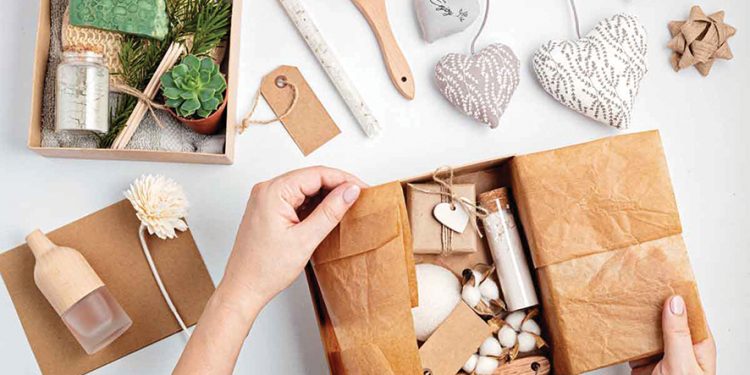More often than not, people buy products during the holiday season just for the fact of giving a gift. What usually happens is these gifts are thrown away, put on a shelf, or in lucky cases, re-gifted to someone else.
Every year, Christmas and New Year’s sees some of the highest percentages of waste than any other time throughout the year. This is the case in several countries, and is due to things such as thrown-away wrapping paper, unwanted gifts, returned clothing, food scraps, and more. Georgia is no exception with its landfill waste consistently rising since 2015, with the exception of 2020.
According to Geostat, Georgia’s website for everything data-related, per unit of 1000 tons, there were 774.7 tons of municipal waste produced in 2015. This is compared to 994.6 in 2019, and 1,045.1 in 2022. Broken down into kilograms per capita, this is 207.8 kg in 2015, 267.6 in 2019, and 279.4 in 2022. Several measures can be taken year-round to drastically lower the amount of waste that enters the local landfills, and starting small with a first step such as eco-conscious gift giving can make a significant impact.
Toma Klepinina has owned Introvert Coffee Bar for a little over a year. When she took ownership of the cafe, she knew she wanted to make it into a space that was more than just a place to get coffee. She decided to sell small items, all locally or individually sourced, and host frequent events such as swaps, workshops, and festivals, having participated in similar events as a ceramics artist.
The swaps are the coffee bar’s most frequent event, happening once a month. They are a place where people can exchange good-condition clothes, accessories, art supplies, and books. If there are any items left over, they are sent to the ‘Choose to Help’ Foundation, which provides items to Ukrainian refugees in Tbilisi. Then, if there are excess items of less or poorer quality, they are sent to people who can recycle them, or to the landfill.
According to Klepinina, the workshops are held regularly, changing between various topics, such as collage or candle making. On December 7 and 8, the coffee bar had a Winter Fair Market for guests to participate in various events and workshops, including screen printing, crochet ornament making, plate painting, and collage making, all of which serve as fantastic gifts for the holiday season. Klepinina said she has always had a love of things that are homemade because of their durability and uniqueness.
“Not always, but often, I find that handmade things have a higher quality. Especially if it’s knitwear or something similar, because machine-produced tends to stop looking good the more you wear it,” Klepinina tells GEORGIA TODAY. “Also in the case of less functional items that are more decorative – I enjoy them because they have more personality.”
There are numerous ways to be more eco-friendly about shopping this holiday season to prevent unwanted waste in landfills. Here are some ideas:
1. Create something homemade. Whether it’s from a workshop or a DIY project created at home, homemade items reduce spending costs, the purchase of random items bought immoderately from larger stores, and are usually more heartfelt than a shirt or other mass-produced item.
2. Buy something durable. When buying items, pay attention to their quality. More often than not, if a pair of shoes or jeans costs less than 20 lari, they will not last long and the fabric will quickly be sent to the landfills. When buying a product made to good quality, it can be expected to last several years, making it a good investment.
3. Gift an experience. Rather than giving something physical, gift someone an experience – the chance to go to the theater or cinema, a restaurant date night, a sporting event, a festival, a conference, or something else that might interest them. This automatically eliminates physical waste and is a good way to create memories.
4. Buy local. Buying from local craftspeople reduces the packaging and transportation costs of sending something from several countries away. It also gives back to the community, rather than giving funds to larger corporations that do not struggle with profits.
5. Alternative wrapping methods. To reduce paper waste, gift items in the bag or package they were bought in. If the labeling or brand shows, it can easily be colored with pens or markers, or covered with small decorations such as bows. Alternatively, use a paper-based wrapping so it can easily be reused. Wrapping paper cannot usually be recycled because it has additional products mixed into the paper fibers. Therefore, doing anything to prevent its use is a big help. Save and reuse wrapping paper for next year.
6. Know what people want. This sounds like a no-brainer, but sometimes it’s difficult to think of what to buy people during the holiday season. Seek answers directly from the person or their friends or family. This will give a clear idea of what to buy, so additional or unnecessary costs don’t get put into the mix.
These are a few ways to start being more sustainable during the holiday season. Klepinina recognises that due to transportation, proximity, and costs, not everyone has the means to shop locally or to choose eco-friendly, but every little helps, so if the means are available, do take them.
By Shelbi R. Ankiewicz














